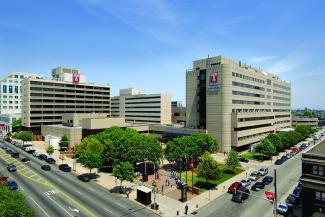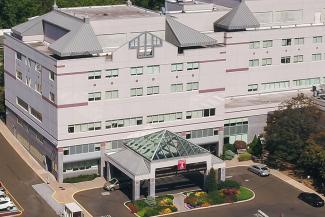The tricuspid valve controls blood flow between the heart’s right upper chamber (atrium) and right lower chamber (ventricle). Three flaps on the outside of the valve ensure correct blood flow and direction. When these flaps do not function correctly, the heart must work harder to keep blood flowing efficiently throughout the body. Over time, this can lead to heart failure, stroke, or heart attack. Most commonly, the flaps are stiff—for instance, due to calcium deposits or scarring—and do not open completely (stenosis). In some cases, the flaps do not close completely, allowing blood to leak backwards (regurgitation).
If possible, the cardiovascular surgeon will repair the valve by repositioning, reshaping, supporting, or otherwise fixing the valve tissue or connecting structures. In severe conditions, the valve may need to be replaced with a new mechanical or donor-tissue valve.

